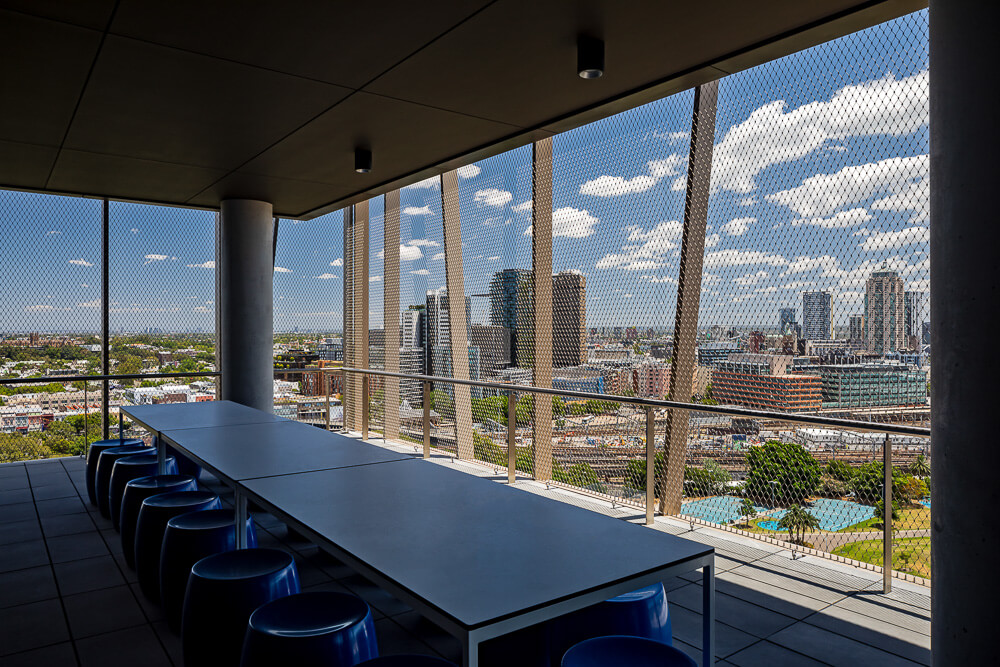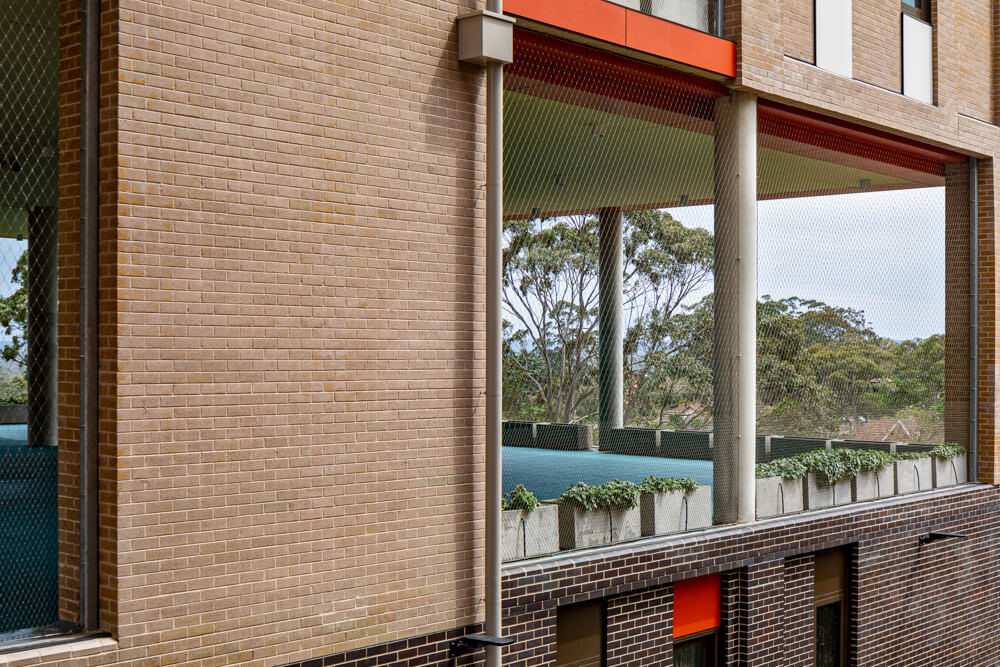With multi-storey educational buildings becoming more common, the need for well-designed and integrated fall protection barriers is increasing.
This includes barriers for balconies, atriums, staircases, indoor terraces, rooftop sports courts and elevated walkways.
Here are some of the requirements for fall protection barriers that help enhance school safety.
The requirements for barriers in educational settings
Safety is the top priority for barriers in an educational building.
They must be able to prevent falls and objects from being thrown from height, while still allowing for full use of spaces.
In addition to maximising safety, barriers need to complement the design of the building and reflect its purpose. For example, if part of the purpose of a building is to encourage connection and community, the barrier should facilitate this.
The barrier must also be expertly integrated into existing architecture. Ideally this should happen at the design stage, but in many cases, barriers can be retrofitted.
The benefits of stainless steel fall protection barriers
Jakob stainless steel wire rope cables and Webnet mesh are ideal materials for safety barriers, offering high strength capacity, durability and low ongoing maintenance needs.
Barriers made from these materials can be engineered to meet all safety codes for crowd loadings and fall protection. They can be made non-climbable by using smaller aperture Webnet to prevent footholds, or full-length vertical cables.
Webnet mesh can accommodate very large spans, which reduces the need for supporting posts and sub-framing. This is particularly important for large-scale rooftop sports courts, where there is a risk not only of falls, but stray balls going over the edge.
These materials deliver on safety requirements for multi-storey atriums, while enabling spaces to be used right to the edge of the void. Barriers made from these materials have a light, transparent appearance, and allow for views, airflow and communication between levels.
While tensile structures and solid architecture are two different building systems, with the right expertise, tensile barriers can be successfully integrated into solid buildings.
These barriers are also cheaper to install and have very low ongoing maintenance and cleaning costs compared to glass, metal fabric mesh and perforated panels.

Stainless steel fall protection barrier projects
Tensile has installed many fall protection barriers into multi-storey education buildings – some of which were incorporated into the original design and others which were retrofitted.
Here are some examples.
Melbourne University Student Precinct – 30mm Webnet barriers
The University’s award-winning precinct focuses on sustainability and connectedness and was designed to bring people together. Our external barriers to the student balconies reflect these aspects.
Inner Sydney High School – 40mm Webnet barriers
This high-rise school required barriers offering robust anti-throw and fall protection with a C5 crowd load rating. As well as installing the barriers, we designed a bespoke post and cable system to support the large-span mesh on the rooftop court.
Chatswood Public School, Sydney – 40mm and 80mm Webnet barriers
The redevelopment of the school meant that barriers were required for a variety of elevated outdoor spaces. By using Webnet the school was able to save a lot on material costs.
Monash University LTB, Melbourne – vertical cable barrier
This project is a bit different from the others in that it uses a vertical cable system rather than Webnet. The barrier extends over all levels of the indoor atrium, creating a fully-non-climbable and anti-throw protection screen.
Our website has many other examples of safety barrier projects. Please get in touch if you’d like to know more about integrated fall protection barriers for schools or other buildings.






































